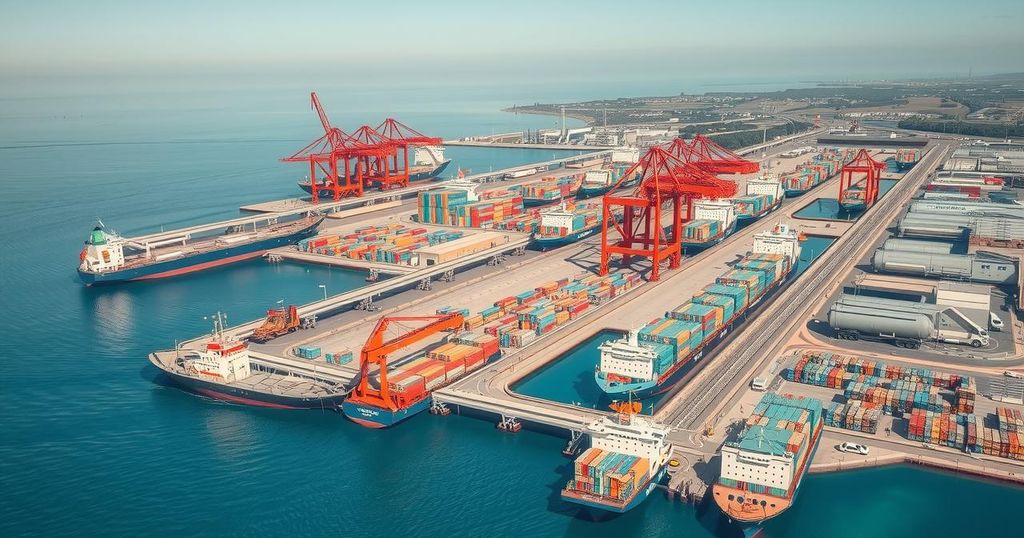Eritrea is an important country in the Horn of Africa with key ports in Asseb and Massawa, approximately 20% of its roads paved, and a colonial-era railway. After gaining independence from Ethiopia in 1991, it has been governed under President Isaias Afwerki, who has maintained power without subsequent elections. The country faces health and literacy challenges but has a rich cultural life, influenced by historical trade routes and diverse traditions.
Eritrea, located in the Horn of Africa, boasts significant infrastructural elements such as the ports of Asseb and Massawa, which are pivotal for international trade. Approximately 20% of the nation’s roads are paved, while a railway constructed by the Italians connects key cities, including Massawa, Asmara, Keren, and Akordat. Asmara is also home to an international airport, enhancing connectivity within the region.
After achieving independence from Ethiopia in May 1991, Eritrea was managed by a provisional government dominated by the Eritrean People’s Liberation Front (EPLF). This body transitioned into the Transitional Government of Eritrea following a national referendum on May 19, 1993. Despite a constitution being ratified in May 1997, no further elections took place, thus perpetuating President Isaias Afwerki’s stronghold on power, characterized by his roles including head of state and commander-in-chief of the army.
Eritrea has faced significant health challenges historically due to drought and conflict, although improvements have occurred post-independence. Current statistics indicate an infant mortality rate slightly above the global average, with life expectancy at approximately 55 years for men and 60 years for women. Educationally, over 60% of Eritreans are literate, aided by instruction in native languages and foreign languages at the secondary level.
Culturally, Eritrea’s music scene features traditional pop from the 1960s alongside influences such as reggae. The cuisine, rich in shared traditions with Ethiopia, includes staples like injera and dfish-based zigni. Eritrean coffee culture is significant, featuring elaborate brewing practices that emphasize social interaction. Sports, particularly football, play an important part in community life, alongside activities like fishing and snorkeling, particularly in the Dahlak Islands.
Historically, Eritrea has been inhabited since prehistoric times, with ancient trade routes connecting local populations to prominent civilizations like Aksum. By the 12th century, under the Ethiopian Zagwe and Solomonid dynasties, Eritrea’s highlands became intricately linked to the Ethiopian Kingdoms, shaping the region’s governance and cultural identity. The dynamic interplay of local dynamics, regional politics, and historical developments has produced a unique national narrative.
Eritrea, located along the Red Sea, is characterized by its diverse geography and rich historical context. Its ports, such as Asseb and Massawa, are crucial for the country’s trade and transportation. Following years of conflict and struggle for independence, Eritrea established a government structure, which has since faced challenges in governance and democratic processes. The country’s social fabric is shaped by its unique cultural practices, old and new music trends, and its culinary traditions, while health and literacy levels reflect the impacts of past adversities and ongoing developments.
In summary, Eritrea presents a rich tapestry of history, culture, and geography, marked by significant infrastructural frameworks and challenges in governance. The enduring influence of its history is evident in its complex political landscape, with President Isaias Afwerki maintaining a central role since independence. The cultural and social aspects, particularly in music, cuisine, and community engagement, highlight the resilience of the Eritrean people. Despite facing health and educational challenges, progress continues in various sectors, contributing to the shaping of modern Eritrea.
Original Source: www.britannica.com






